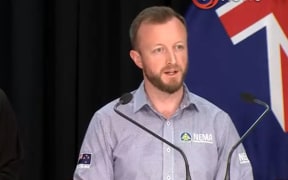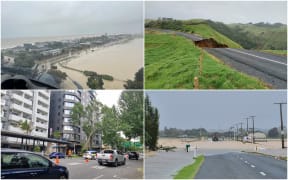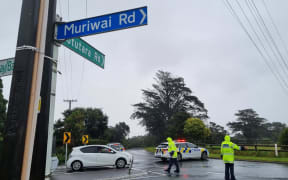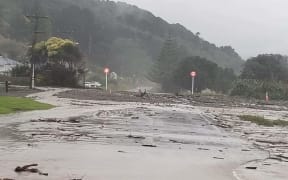
Damien O'Connor. File photo Photo: RNZ / Angus Dreaver
Farmers, growers, whenua-Māori owners and rural communities will receive an initial $4 million for recovery efforts from Cyclone Gabrielle.
MPI is also restarting the national Feed Working Group, a partnership between sector groups and providers to monitor feed availability.
In a statement, Agriculture Minister Damien O'Connor said the funding would help those dealing with the storm's impact, "with milk collection disrupted, orchards inundated and livestock losses across much of the North Island".
He said he expected more support would be provided after a thorough assessment of the damage was complete.
"That destruction includes flooded farms and orchards, damage to vital roading and electricity infrastructure, and isolated communities. Conditions continue to make it difficult to assess the full extent of crop damage, livestock losses, and disruption."
Associate Agriculture Minister Meka Whaitiri said the government was being regularly updated on the wellbeing of people and the welfare of livestock.
"Māori agribusinesses and their staff have been affected across the motu and we will help them get through this."
Whaitiri said regional staff from the Ministry for Primary Industries were focused on assisting the primary sector.
"We're being regularly updated on the well-being of people and the welfare of their livestock. We will work directly with sector groups and organisations, including Rural Support Trusts, to identify and focus help to the areas of greatest need."
O'Connor said immediate issues that needed to be address included making sure isolated communities had access to food and power supplies.
"Conditions continue to make it difficult to assess the full extent of crop damage, livestock losses, and disruption."
"Widespread power outages are affecting dairy farmers' ability to milk cows, especially in Northland. Ministry for Primary Industries (MPI) staff are working closely with sector groups and processors to minimise any potential animal welfare issues."
The government has already declared a National State of Emergency and announced an $11.5 million community support package to assist in the response to Cyclone Gabrielle.
O'Connor said more support was likely to be rolled out once a full and thorough assessment of the damage is complete.
The Ministry for Primary Industries has also activated its national feed working group, in response to the damage caused to crops used to feed livestock.
National state of emergency: What you need to know
- The New Zealand government has declared a National State of Emergency, to assist in the response to Cyclone Gabrielle.
- The declaration will apply to the six regions that have already declared a local State of Emergency: Northland, Auckland, Tairāwhiti, Bay of Plenty, Waikato, and Hawke's Bay.
- A national state of emergency gives the national controller legal authority to apply further resources across the country and set priorities in support of a national level response.
National Emergency Management Agency advice:
- Put safety first. Don't take any chances. Act quickly if you see rising water. Floods and flash floods can happen quickly. If you see rising water do not wait for official warnings. Head for higher ground and stay away from floodwater.
- Stay at home if it is safe to do so. But have an evacuation plan in case your home becomes unsafe to stay in.
- If you have evacuated, please stay where you are until you are given the all-clear to go home.
- People should stay up to date with the forecasts from MetService and continue to follow the advice of Civil Defence and emergency services.
- Do not try to walk, play, swim, or drive in floodwater: even water just 15 centimetres deep can sweep you off your feet, and half a metre of water will carry away most vehicles. Flood water is often contaminated and can make you sick.






